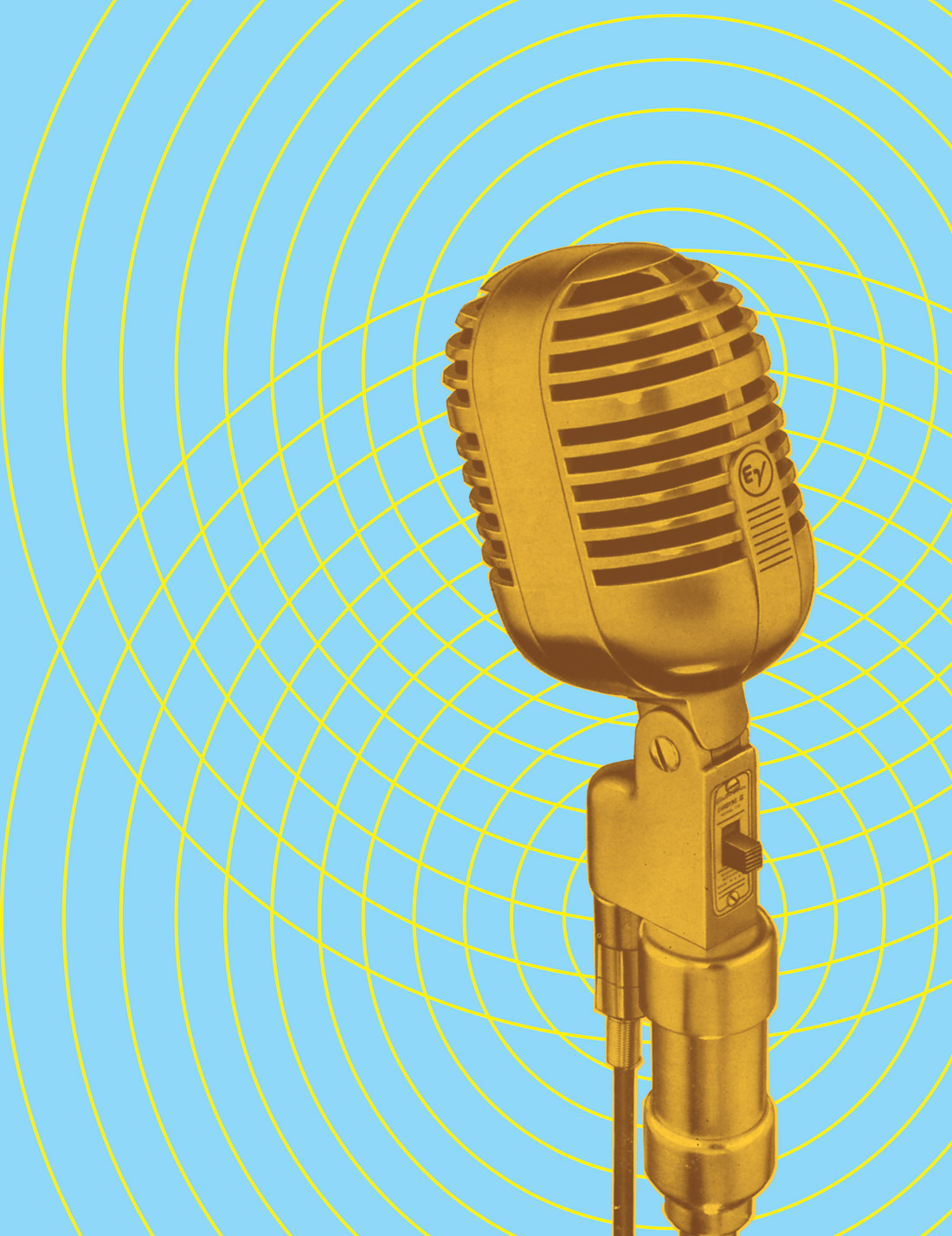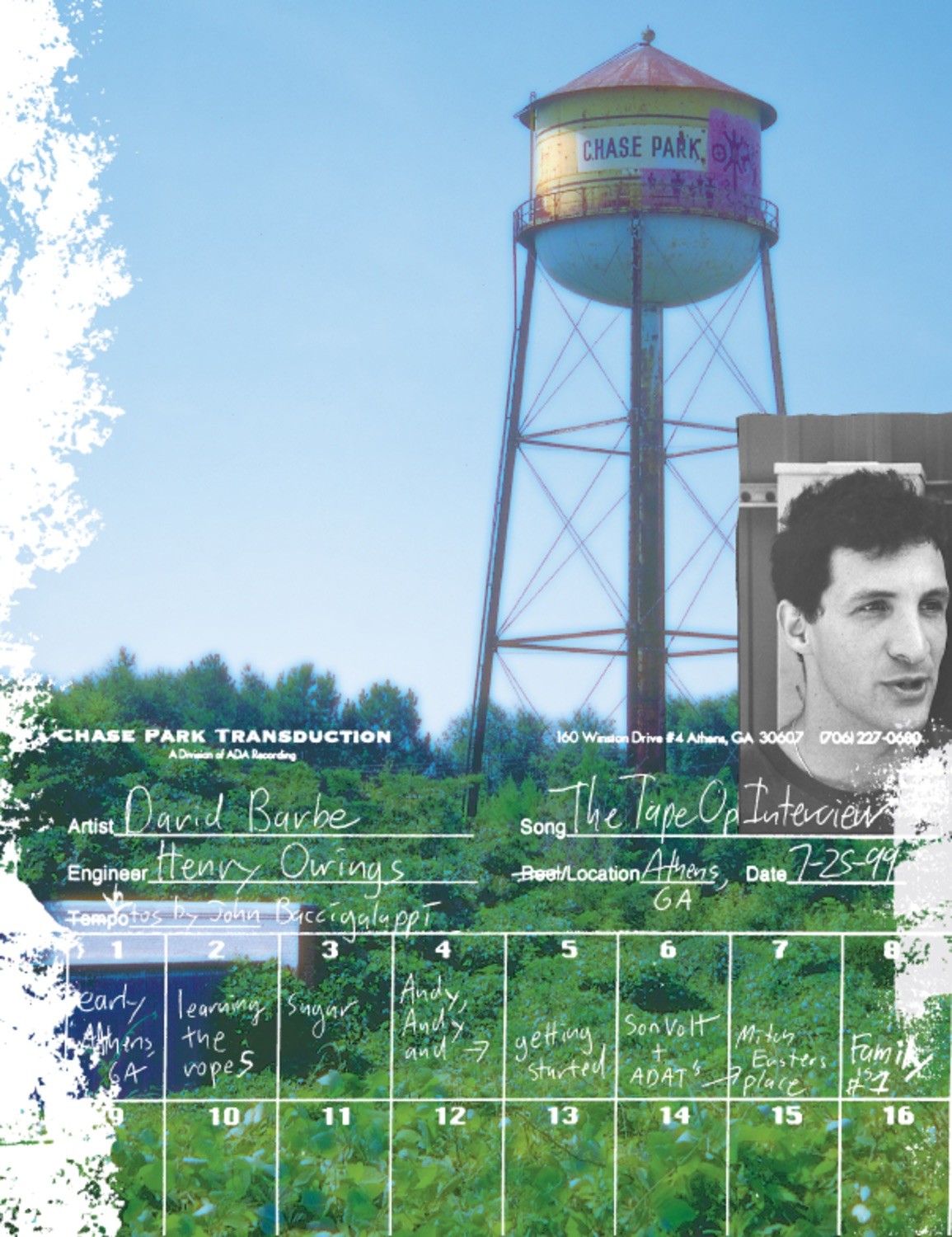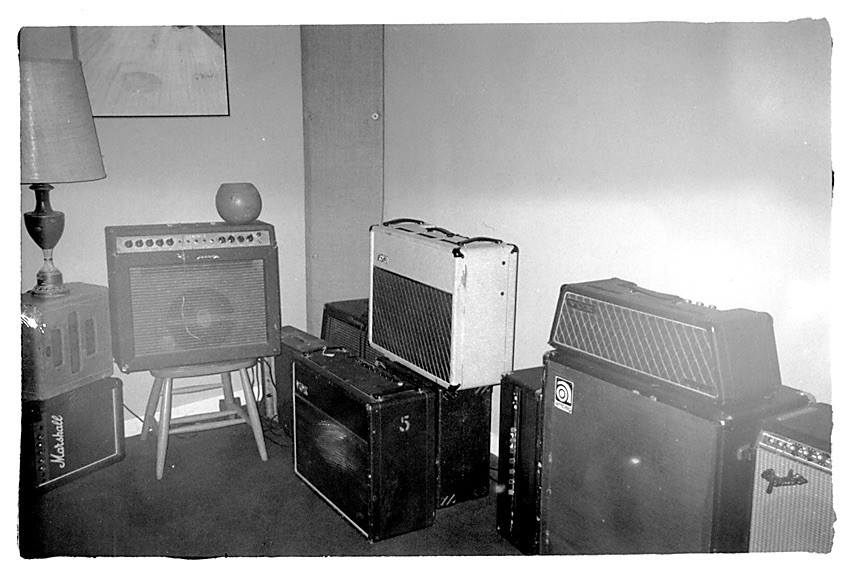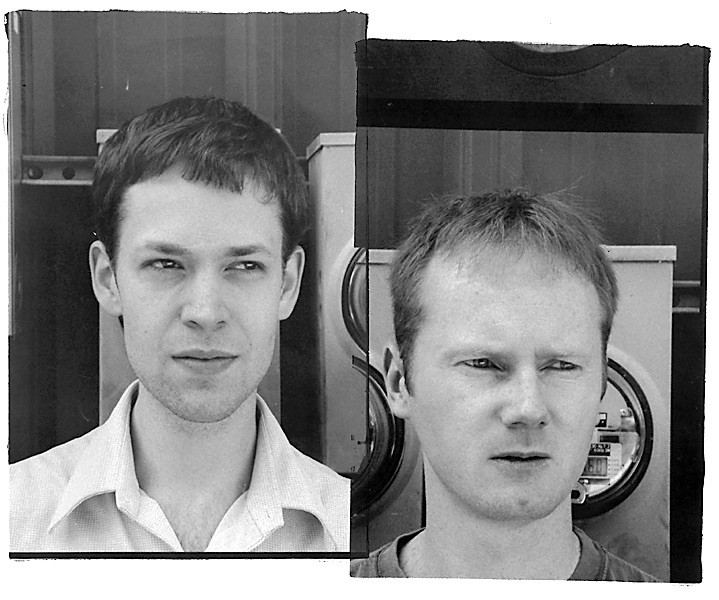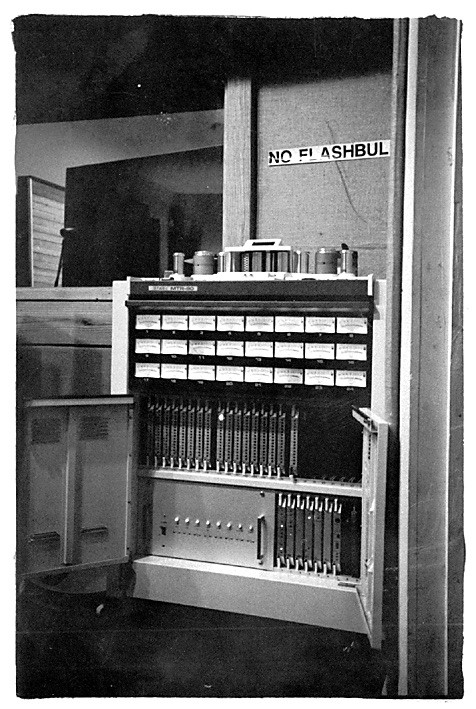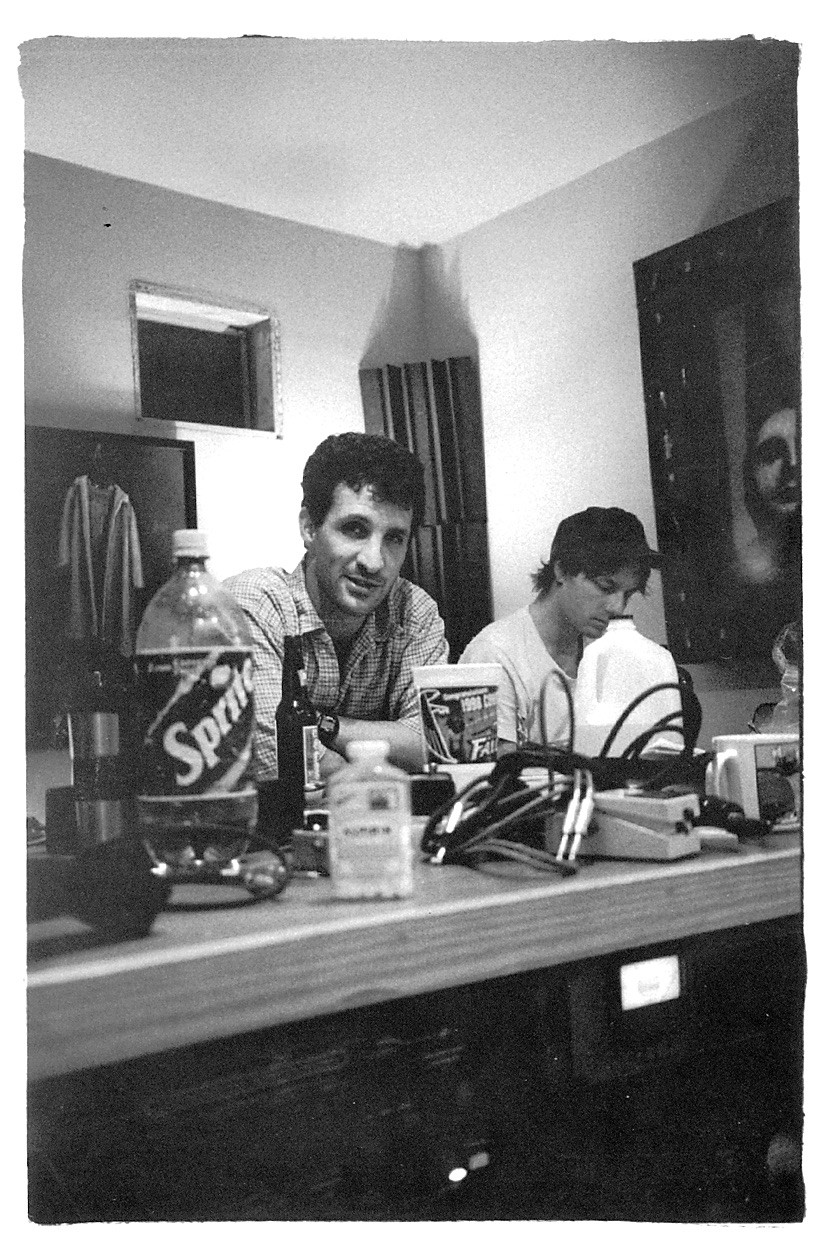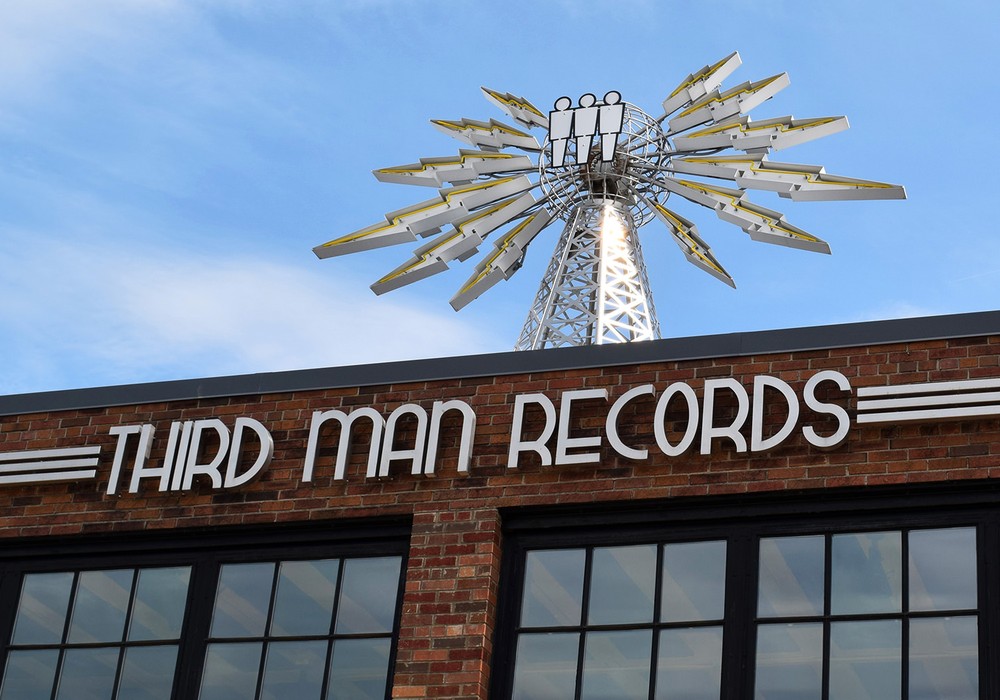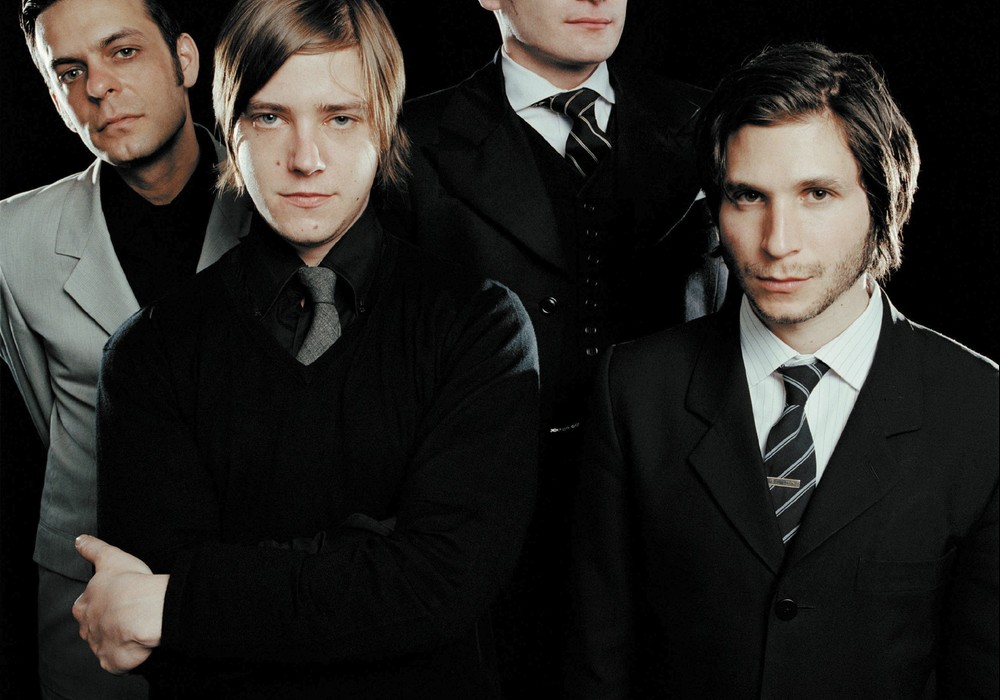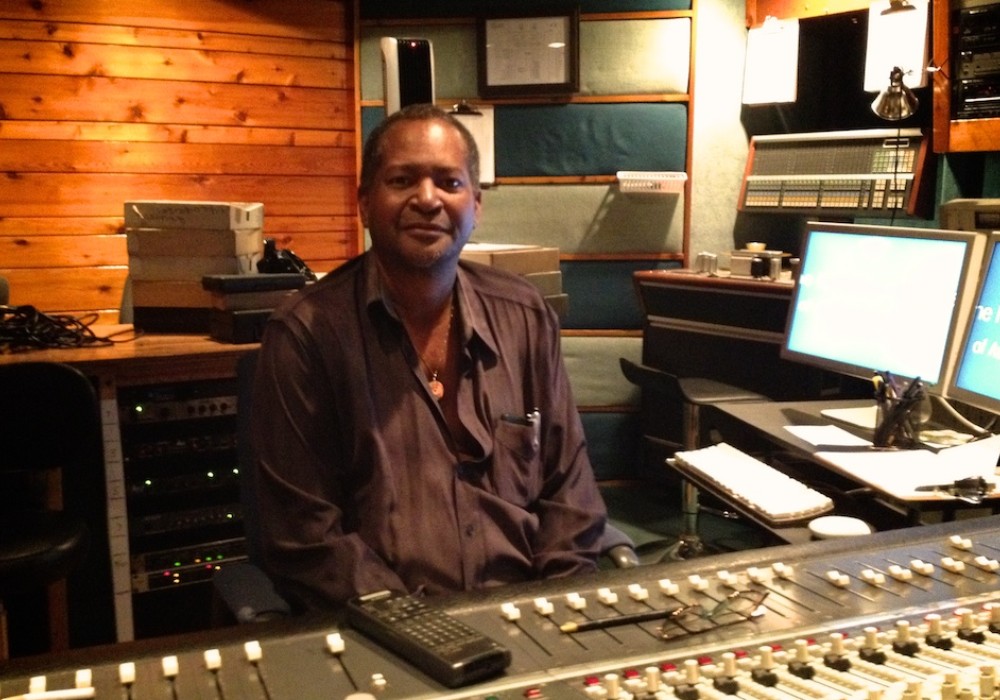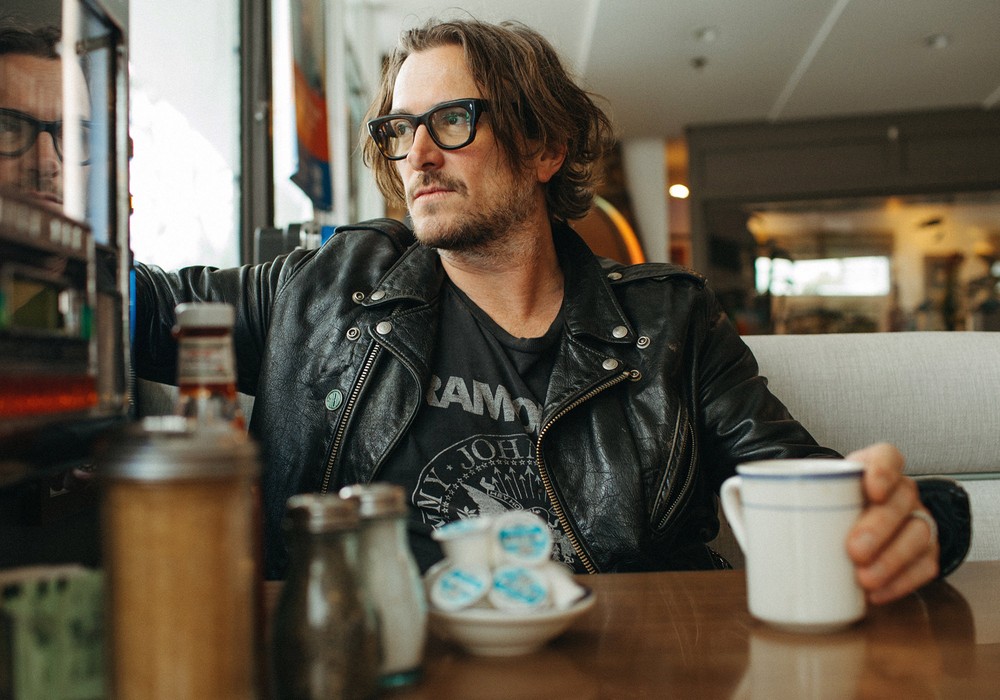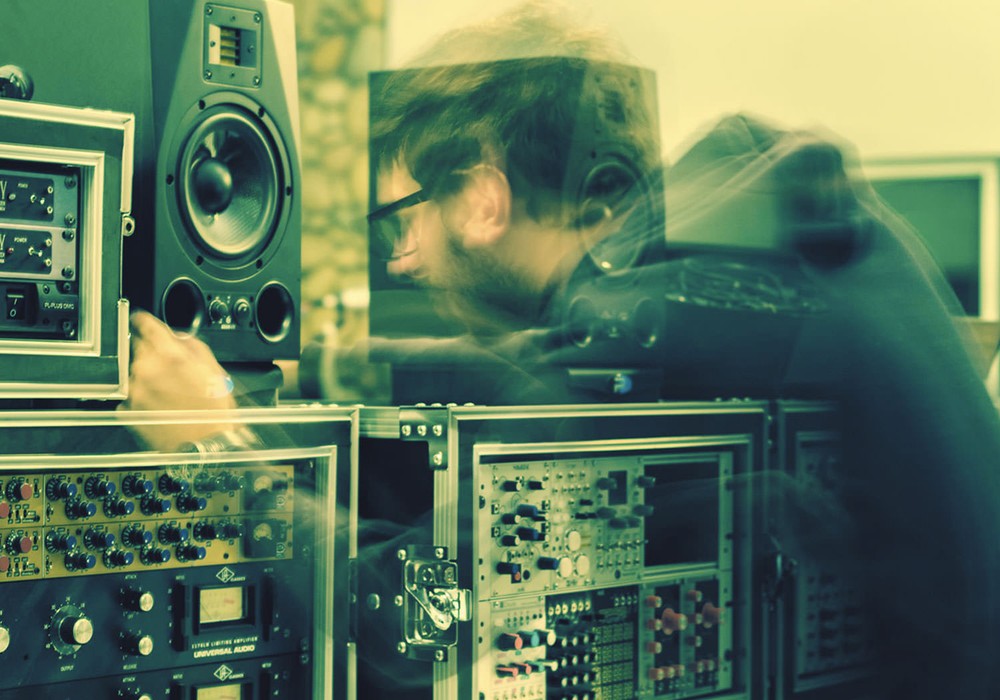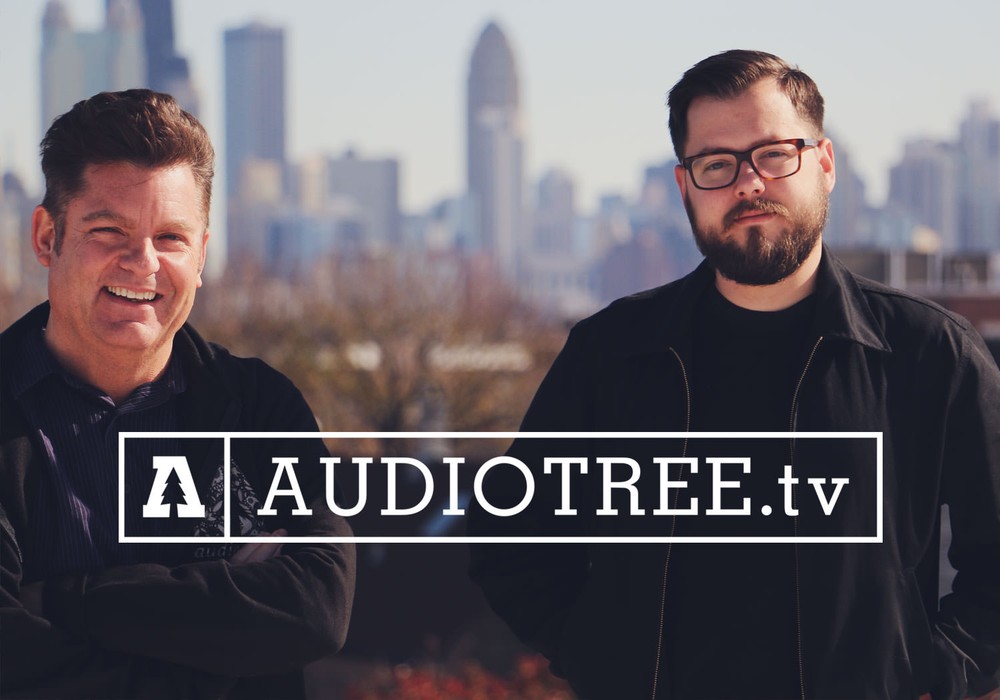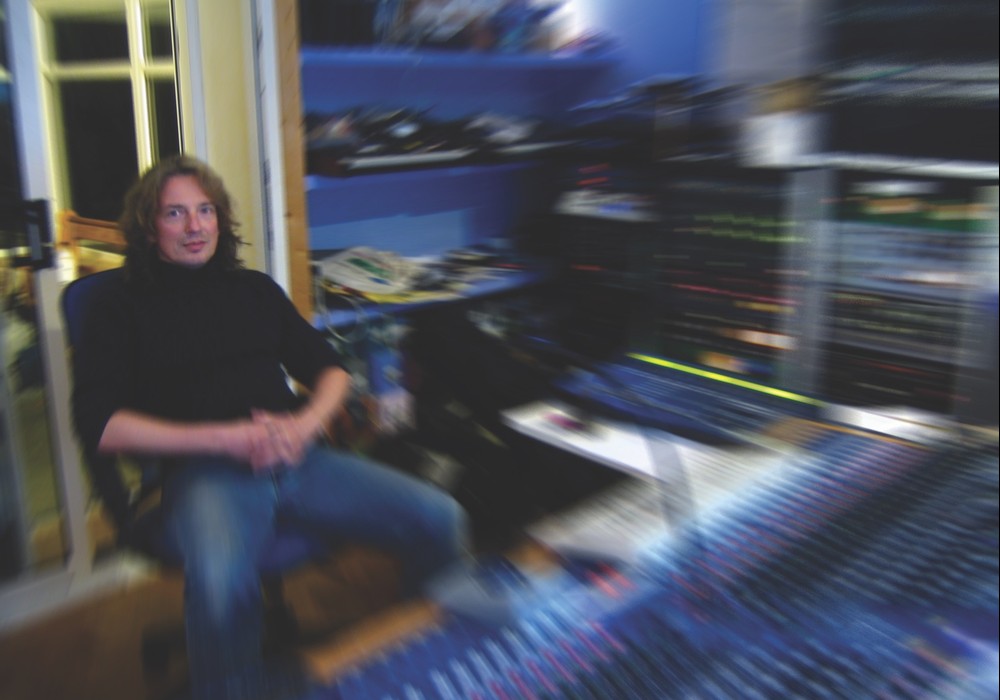David Barbe is no less than a living legend in Athens, Georgia.
Coming from the 'old school' Athens (and still being of sound mind to remember most of it), he is known for any one of a number of his musical endeavors. First starting off with the punk rock standard bearers Mercyland, then then a brief stint in the Scratch Acid influenced Bar-B-Que Killers, then onto Buzz Hungry and then, in the midst of it, an excursion (if you can call four years "an excursion") with Bob Mould as bassist in Sugar.
Of course what is of greater importance to Tape Op readers is the fact that he's probably more well known for his recording prowess with bands as varied as Son Volt, Macha, and any one of the more seedy, crusty bands on the underbelly of the Athens music scene (ck. Harvey Milk, Skinner pilot, etc).
A couple of years ago, David, along with fellow Athens recording engineers Andy Baker and Andy Lemaster, colluded to form Chase Park Transduction on the outskirts of Athens. Since then, business and their clientele have been growing very well, thank you very much. As Tape Op readers will no doubt notice, what I lack for in technical knowledge, I make up for in sheer volume.
So without further ado...
So you've been in Athens since '81, did you come to school here?
Yeah I grew up in Atlanta and then moved out here to go to school. If you like rock music it was a pretty great time to move to Athens. I played in a bunch of local bands around here and started Mercyland in '85 and that's when I got serious about it. [Back then] there were only about 20 or 30 local bands and even though there are better bands now, it was exciting because it was a genuine under- ground. [After Mercyland,] Buzz Hungry start- ed and six months after that, Bob [Mould] called and I started doing Sugar. So Buzz Hungry from '91-'96, Sugar was from '92-'95, sort of tucked there in the middle.
At what point did you start recording Mercyland?
Well, I had been recording stuff since I was a child, my parents were musicians and they were in the jingle business. So I've been in studios forever. I cannot remember not being in a studio. I recorded my bands as soon as we had real drums and amps. When I was about 12 or 13, I'd be recording shit in the basement. Up here, though, Mercyland went into the studio three weeks after we were a band. We had written some songs in '85 and I had been recording other people's bands on my four track before then. I was a really avid our tracker, and had a little set up in the back of my house. We would go to people's practice spaces and record. That kind of gave me the idea that I knew what I was doing, even though I really didn't. Right after Mercyland got to go into the studio, the BBQ Killers went to John Keane's [#65]. I went over there with them as "the producer," even though I didn't know what the knobs and the buttons in the studio did. I was just to be the guy to say; "Okay. That sounds good do it like that." Or, "You can play it better. The snare drum sounds weird." Once I did that, I was constantly telling people I knew more than I really did so I could go into the studio with them. So I went into the studio with a ton of bands to help without knowing shit about engineering. Most well- known being the BBQ Killers and the Jack O'Nuts and a ton of others that have since fallen by the wayside. I was also more and more, obviously, not doing the Mercyland recording. So [in '91] when Mercyland broke up, John Keane called me up and said he realized he had a need for a second person to work in his studio. I had been in that studio enough times to know just enough so that I could identify what I thought was a good drum sound from a shitty one and I could identify what I thought was in tune and out of tune. Basically, I knew what I needed to know about making some pretty rudimentary recordings, I just didn't have the knob twiddling skills. So I went over there and interned with him for a few months and then went to the Recording Workshop in Ohio, where John had been years before, which basically amounted to a six week crash course which was the greatest thing. The first five weeks were basic recording theory and technique. It's a lot better than some of these other things where you go to school for two years and you have to take all these other classes that are somewhat related to recording music, but cover a much broader spectrum so they can charge a lot more money that way.
Was this like a recording engineer's boot camp?
Basically. Depending on your studio schedule for the day you would go from either like 9 AM to 9 PM with a couple of breaks tossed in there or from like noon to at least midnight or one. It was great, they really stressed signal flow, how the sound travels down the wires and that's what John wanted me to learn. So when I came back home, he let me do a band for one day to show him I could do it and do them for free. So I did Liquor Cabinet over at John's, did one song then John went out of town and then I was on my own. I was actually making people's records, local granted, but I was recording a week or two back from boot camp. I wasn't like making coffee or sweeping floors. He gave me the keys to the studio and alarm code. It was the greatest thing anyone has ever done for me because John just totally threw me into the fire. He also let me record really cheap, so I could drum up some busi- ness. So I did Daisy and Roosevelt who were two of the very first ones.
John Keane's is an expensive studio, comparatively speaking.
Yeah, probably now more so because he does all the major labels. At the time it was $550 a day, which now would be a steal for that stu- dio, but at the time it was by far the most expensive place in town. The local bands couldn't go over there and record for $30 bucks a hour. So I called everybody I knew in a band, and it worked out great. I was so busy. Then from there, I got the Sugar opportunity from Bob. It was such a great time for me because I had just learned all this stuff in school, so I was totally obsessed about record- ing. After getting involved with John, I was really wrapped up in it and then I got to go with Bob to make Sugar records at nice studios. Those were done with Lou Giordano, who had done our first two records.
So you got to learn with them?
Oh God! Hanging out with Bob and Lou in the studio is just a different style, different part of the country, different sound studio. Just a different set of experiences all together. When we made Copper Blue and Beaster, Bob and I both stayed at the studio in sleeping bags. He stayed for about 6 weeks and I was up there for about a month, but it was great There has been several times like that where I've just stumbled on an opportunity to learn something else.
So when Sugar ended in '95 you just came back to Athens and started recording again?
Well, the whole time I was in Sugar we didn't tour that much because I already had kids. So a record would come out in August, and from September until right before Christmas we would be gone three weeks, home for a week, gone for three weeks. After Christmas, go to Japan for a week and that would be it for six months. So I had half the year to record. I was constantly coming back here to record and John had gotten a lot busier. I branched out, first from John's to the local studios around here. At the time there was John's, Kelly Noonan's, Mark Maxwell's Full Moon and Andy Baker's Rock Central and then from there I got a call to go to Atlanta and record Fiddlehead at Bosstown. So once I went down there and did that I was like; "Well, shit, now I'm in Atlanta. I can work down here too." It's like all these steps. I'm always thinking that I can just move into the next thing and I can just figure it out when I get there. It is what I've always done anyway. So then I started freelancing in Atlanta. Now I think that there are a lot of good choices around here for people to record with. There are a lot of things I wouldn't do a good job at because I don't know the vocabulary. I should never be asked to record a heavy metal record, I would do a terrible job. I don't know anything about it. But for a lot of these punk rock bands, I value [what they're trying to do in the studio because] I've been in these same sort of bands. I understand that somebody might want the guitars louder than the vocals or the drums to sound like you're in a room with them as opposed to some incredibly processed sound. That was good timing for me too because there wasn't a lot of competition. By the time I came back from doing Sugar, I really got steady doing it, and from the beginning of '95 until we opened this studio in '97 I really picked up the free- lancing. I was working from 25 to 30 places a year just between here and Atlanta. Brooks Carter [guitarist for the now defunct Jack'o'Nuts who now lives somewhere in the Industrial Triangle, NC] and I went in together on a digital 8 track and a Mackie 16 channel board. I already had some good mics so then we started recording people in their houses.
I remember that's the way you did Skinner Pilot, right?
Yeah, Skinner Pilot was done that way. I recorded some of their sessions at Elixir and Brooks recorded some over at their house. We then took it over to Brooks' apartment to mix. The first Harvey Milk record was recorded at Paul Trudeau's [HM's drummer's] house then mixed at Brooks' apartment. I think Harvey Milk spent approximately $1,000 making that record. John let me bring my stuff into his studio and just recorded the basic tracks in that room so we could have a sound proof studio set up. We did it in one day and it was really cheap for them. Then we took all the stuff over to Paul's house and the tape machine over to Brooks' house and mixed in his apartment. He didn't have any kind of reverbs, we just ran the drums out a guitar amp out into the stairway and hooked up a couple of mics. So on that song that has the long pauses in it, if you listen closely, you can hear crickets in the back- ground because they were coming in the win- dow. That was an invaluable period of record- ing because it's little more of a challenge to make it sound good in a more rudimentary sit- uation. Also, people are more comfortable in their houses, so that was fun. We built this place [Chase Park Transduction] in early '97 and it opened in May of '97. Since then, I've occasionally been going to other places to work. I went to Illinois to do Son Volt and a few times I've gone over to Tom Lewis' studio where he is doing sixteen track as well. So a couple of times, if we have been busy here, I've taken a reel of tape over there and mixed something or done overdubs.
Were both Andys brought in right as you opened this place?
Yes. Tom Lewis and I were going to do a studio together. Andy and Andy were going to open a studio together and we were both having an impossible time finding buildings. Tom and I decided to do our own things, it just wasn't going to work because we both have similar needs. Andy. B and I have always been really friendly so we kicked around the idea of finding a temporary space together until he and Andy could get their building together and I could build my own place. I wanted to build a studio in the woods and just do it out there. So we started looking around and we found this place. Once we started building it was obvious this partnership was a good thing and we should take this a little more seriously. It's always been three of us in partnership in the studio. Andy Le Master had a studio in Toccoa called The Furry Vault. The Vault was a small cinder block shed behind his parent's house. It was so small that the guitar over dubs would be done in a car or van. They'd back the van up to the door of the place and put the amps out there and the mics in the van. Andy learned how to record on some pretty rudimentary stuff as well. Andy and Andy decided to get together on this building in Colburn that fell through and I was going to build this encampment out in the woods. Then I finally realized that when I built the building I wouldn't have any money left to buy equipment. So we just all kind of fell together because we all had very compatible situations. That is, as a freelancer I had always bought one piece of incredible equipment at a time. If I needed some more mic pres to record something in some remote place or a studio that didn't have good sound ing mic pres, well I'd go buy two API mic pres or two Neve mic pres or ribbon mics cause the studio doesn't have any so I would buy one Coles ribbon mic. So basically over the course of five or six years before I opened, the studio I had massed a pretty great arsenal. I had about a dozen great mics to supplement the meat and potatoes of most studios. Even the most basic studios have a few SM 57's, Sennheiser 421's, one or two condenser mics, a [AKG] 414. So what I did was bought more esoteric things that worked well with a meat and potatoes mic collection. Andy [Baker] had the studio in his house. He had a Trident console and 15 mic stands. He had the meat and potatoes mic collection and a couple of nice ones. So, when you put it together it was basic. To open a studio all we needed to buy was a 2 inch machine cause we had everything else, but we did buy a bunch more stuff. While I was freelancing I knew I wanted to open a studio one day. I just knew that a lot of studios I'd go into there would be some regret on the part of the person that owned the studio, like "I wish I had known what I was doing a little bit more when I opened this place up because I would have set my patch bay up differently, laid my rooms out differently. I wouldn't have bought this board, I would have bought a different one." So I sort of figured if I just bought all the really cool stuff a piece at a time, just slowly amassed it while I was sort of figuring out what I wanted out of rooms and consoles and stuff, then when it came time to open a studio all I would need was the board and the tape machine.
Andy Baker's old studio [Rock Central] was right across the street from where I lived, and that was an interesting set up.
Yeah, it sounded great. I think he completely opened up the underground recording scene in Athens. It sounded great in that house and you could work there for really cheap. I mean it was- n't slick, there weren't tens of thousands of dol- lars of great equipment but for what it was, it was totally great. I always liked working over there. He had Rock Central and Andy Le Master had the Furry Vault and I was just a guerrilla.
I always remember talking to Andy and he was getting very frustrated that it just seemed like he was the "demo" engineer in town. He was the one before they came to you, everyone would go to him and just do something for a 7 inch. He wanted to do records.
Right. That's what is so fuckin' great. Now that he has this place, he is doing what he was trying to do. It sort of helped everybody out that we all know twice as many people now because of all the traffic through here. Andy [Baker] could have been making great records over at his house too if anybody would have gave him a chance to do it and I always knew that. We've also started working on each others sessions a little bit. I was doing the Bloodkin record and they had gotten Moe Tucker [drummer for the Velvet Underground] to come up and sing on their record. Danny Hutchins had played in her band in Europe at one time and I was leaving to do Son Volt the day they had to do it with her. She drove up from South Georgia to come play a show and you know you don't want a [ illegible — ed ] to sing for 20 minutes. So they tried to work it out with another trip for her. It was great because there were three of us here and I could easily say Andy L. is free that day he can do it and he was totally into getting to record somebody that legendary. It was great for me because I knew it was in great hands but I already had a commitment to Son Volt and I didn't want to blow that off. That's just one example of how it's worked out so well.
It's like a tag team sort of thing?
Completely. Macha so far has generally wanted to work frequently like 20 hours a day. So we figured out into it that the best way for us to do it was to always keep a fresh man in the ring. There were some days that Andy B. would work from 9 until 6 or 7 at night then I came in at 6 or 7 and worked until the sun came up. There's other days where I came in the morning and worked until 5 or 6 then Andy L. would come in at 12 and work until the next morning. They always had a fresh engineer to help them get it going on. Whereas a 20 hour day by yourself, the quality of the overdubs and hours 17 through 20 are probably not quite as good. The judgment tends to go a little bit.
How was it working with Macha?
They are so particular in such a good way because Josh [McKay, Macha "instrumentalist"] has a vision of what it's all going to sound like when it's all done and just the instrumentation alone makes it incredibly fun to work on because it's always a challenge.
I know you worked with Son Volt a couple of years ago?
They practiced in a former lingerie factory in Milstat, Illinois, which is a town of maybe 3,000 and there is nothing there. Jay [Farrar] lives over in St. Louis now which is about 45 minutes away from this place that they practice [ illegible ]. What they have is two 25'x40' rooms with 16' ceilings, nice size rooms to record music in. They called me in May of '97, [after] they heard some of those recordings I had done in the basement at Brooks', and asked me if I'd be interested in coming out there and recording some demos for them. So I took a dozen cool mics, a couple Coles ribbon mics, some Lawson tube mics a few other things: a handfull of good mic preamps, a couple of good compressors. They have a Mackie board, three ADATs and a dozen or so solid standard microphones plus five vintage drum kits, 40 stringed instruments, a piano and 30 or 40 cool amps. They just have a ton of stuff. We recorded six songs over a course of a couple of weeks and so they asked me to come back in September and do a little more. I went back out there for a couple more weeks and we recorded a little bit more.
Was all this just demo stuff?
Well that's how it was put to me. Then I went back in November again for a couple of weeks and at that point it was like, "What are we doing? Are we making a record?"
Did you ask them that point blank?
I said, if we are making a record then here is a couple more pieces of equipment that I need to get to do this, their response was, "Yeah that sounds good." It was great because they were doing it on ADATs because the cost is really low. A two inch tape, you can budget roughly for $10 a minute for $150. A 16 minute reel of tape, there is some time in-between songs and whatnot. 24 tracks of ADAT tapes that run 45 minutes will cost $18. So basically $18 for 45 minutes or $900 for 45 minutes of 2 inch tape. Two inch tape sounds better, no two ways about it, but what we did is they wanted to record a record in the same manner that Blonde on Blonde was recorded. Where nobody really knew the songs when they were recording them, they just sort of learned it and then they would get one where it all comes together. I recorded everything, 900 minutes that we actually kept. I would set a tape machine up and tell them it's rolling and they would play the song, finish, no recess or anything, after about 30 seconds I'd say roll again. I never turned the tape machines off, just let them roll. They would finish one whole tape then stop, listen back to what we had done and take a break and then figure out what they wanted to change. The next day we would come in and listen for a few hours and someone would say they like tracks 7, 29, and 38 and someone else would like 29 and 38, but find a mistake in 7. We narrowed it down to the ones everyone liked. So we got it all done. I went out there a total of 6 times for periods of 10 days to two weeks usually. We got all the recording done and I'm 16 track here, so we had to go to a 24 track studio to mix it. We went to Mitch Easter's studio in Kernersville, North Carolina which is a really great place. He has an Neve console and a lot of great old equipment. So we took the tapes there and bounced from the ADATs onto the 2 inch 24 track which warmed it up considerably and then mixed from that through Mitch's board and everything. It came out really great and I would gladly do another record like that. The difference in going from the digital tape to the analog rather than straight to the analog was not as great as you would think. The analog after the digital definitely sounded better than what was just on the digital tape to begin with. It totally tightened up the sound because the analog tape compresses and introduces harmonic distortion into the sound and to all of us that have grown up listening to music that was recorded on tape that sound is warmth. It's like the difference in film and video and if you perceive it as warmth well then it is warmth. I've gotten into arguments with engineers before who didn't like analog because they thought that it introduces distortion, but it's good distortion like with a tube amp. It's distortion that is fun to listen to so, therefore it's good. We're not documenting medical records here we're making rock n' roll records, it's fun. The analog tape did its thing to the digital tape and it worked out well for many reasons, it tightened up the sound overall, but, in addition, I was able to get my tape level on each sound after the performance was already done. Meaning a lot of the times you'll get set up to record a band you'll get the levels all set and then when the tape starts rolling the drummer is sudden- ly hitting twice as hard than he was before. After doing this for awhile you learn to set your levels low because the guy is going to hit them hard. It happens in the other direction too. You set it all up and suddenly it's a really quiet song and you have all this tape hiss because things were not recorded hot enough or everything is pounding in the red and it's beyond where you wanted it to be and your stuck with it. By set- ting the tape level after the performance is done I was able to really milk the analog tape for different sounds on different songs, different instruments and stuff. I knew that there was a shaker on a couple of songs and on one of them we wanted it to sound really clean and pristine so we kept it at a really nice low level where you would normally cut a quick transient attack like with a percussion or acoustic guitar or something. On another song that was kind of a rocker, we wanted it to sound like the shaker on "Mary, Mary" [which was recorded in 1966] where somebody hit the tape really hard on purpose or the meters on the console or tape machine weren't as quick and didn't know how hard they were hitting the tape. So with that we hit the tape a lot harder knowing the song is already done we have already heard all the instruments and the lead vocal we know where we want it all to sit in the mix. It was very time consuming and not something I would recommend doing for someone that wants to make a record in 4 days but for somebody who has got a lot of time to make a record. It was fun. They didn't have to burn any takes or 900 minutes of ADAT tape.
Which is 20 ADATs right?
It's 22 ADAT tapes is what we had so 990 minutes or something like that. So a 1,000 minutes of ADAT tape costs $600 or $700, if we would have done the whole thing on 2 inch tape it would have cost them $10,000.
Did it basically start out as a curiosity project?
I think they wanted to see how recording in the space would go. They had make records in some nice studios and I think they wanted to see what it would be like if they did it in their practice space and time wasn't an issue at all. They had all the time we could want in the practice space. I think it was one of those things that started out as an experiment to see how it would work and after the first couple of times it was working pretty well for everybody so we just kept on going.
Seems like your lifestyle is extremely mature, very grounded. You have children and a wife. How are you able to strike such a good balance between having a family and being a recording engineer?
Well I've got a definite order of priorities. My fam- ily is first, music is second and I really don't have that many interests outside of that. There are things I like to do for fun occasionally, but I've narrowed my life down to basically those two things which fortunately are both things I love very much. You just make do. I don't real- ly know how to explain it except that you do what you have to do. I have to support my family emotionally. I probably wouldn't be as good of a father or husband if I did something that made me miserable all day long. Even though my wife isn't a musician she is very supportive of what I do which is probably a huge factor in it. I'm sure that applies to all kinds of marriages and jobs, if you don't get support from home, you're doomed from the start anyway. My priorities are clear. I don't work on weekends and a lot of bands want to record on weekends. If they have to record on the weekend, Andy and Andy do a terrific job and they're here to do it. There have been a few occasions where somebody has to choose between recording with me or recording on the weekends because I'm never going to choose somebody else over my family, but there are exceptions. If it's something I'm really dying to do and they can absolutely only do it on the weekend, especially when it's in the summer time and school's not in I can be a little bit more flexible, I generally find a way to work it out. Most people that I work with understand my situation. The exception that people have to make for me is that most of the time I don't work weekends, I've got to spend time with my family. Quite honestly, I don't have much of an interest to work with anybody that wouldn't understand why my family's a priority to me. Life is short. I take a two hour break everyday which has actually worked out to be great for the music. That is, I'll usually work with a band from around eleven to four or five then from six or seven till around eleven or twelve. There is no shortage of time spent on their recording. The thing that I've noticed is the quality of evening work is really great because everybody is fresh and rested. Everybody is on time because they've had two hours to go eat, buy a pack of smokes, if they're from out of town they can go downtown and goof off or some- thing. A lot of people want the chance to lay around in here and not listen to any sound or if I'm recording basic tracks they can stay in here and rehearse for free for a couple of hours, get it together.
In the general day to day operation of this business who takes care of what?
The decisions are made by committee, an agreement by all three of us. I would have not gone into business with people that I didn't have a pretty similar philosophy with because it would be very frustrating. We rotate office responsibility. This week, before you came up here, I balanced the books for the week and next week I'm going to be on vacation so Andy B. will do it, the week after that Andy L. can do it. We have an outside accountant that takes care of all the real bookkeeping, we just total it up and send it to this guy. It sort of falls in different areas. I like haggling with people about equipment so a lot of the time I'll take care of that because I'm interested in seeing what is out there and what the prices are. But like I said, we rotate responsibility. I don't answer the phone when I'm doing ses- sions because I don't want them to wonder if they are paying me to record or talk on the phone. We have a sit-down meeting once every few months to discuss what we're doing, what we need to buy, or fix, what's not working right and scheduling wise we keep in close contact with each other every few days about what's up in the rotation, who is responsible for the books, or buying the coffee and paper towels.
